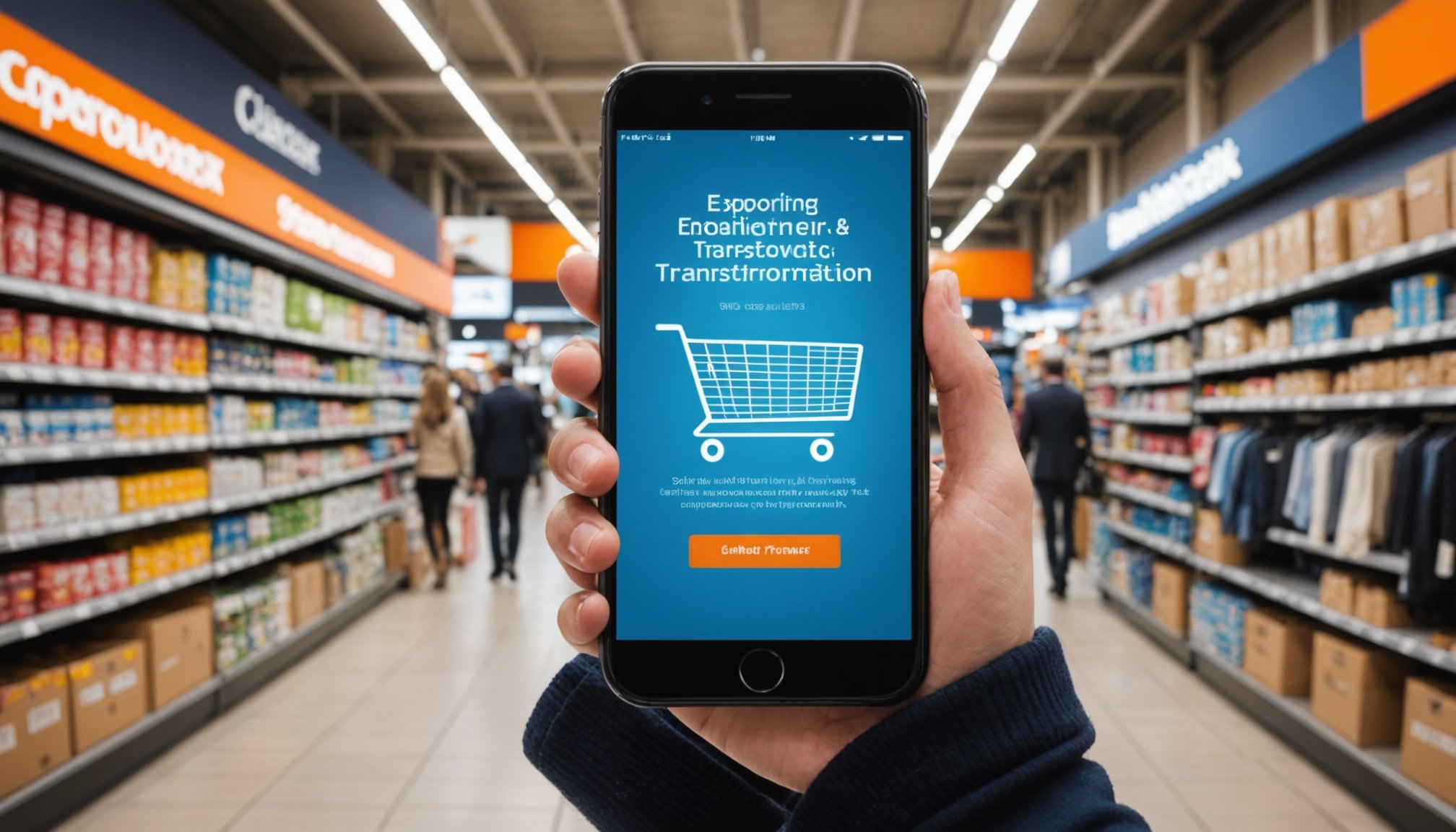Understanding Digital Transformation in Retail
Digital transformation in the retail sector marks a significant shift as businesses embrace technology to streamline operations and enhance customer experiences. For many UK retailers, staying competitive demands integrating retail technology and adapting to shifting market trends.
Currently, digital adoption among UK retailers shows a mixed picture. While some have advanced rapidly, others lag due to challenges like legacy systems and misaligned strategies. Successful digital transformation often involves a holistic approach—adapting processes, technology, and culture.
In parallel : Boosting Customer Loyalty: Innovative Influencer Marketing Tactics for UK Vegan Brands
Consider Tesco, a vanguard in leveraging retail technology. By integrating digital platforms and enhancing supply chain efficiency, Tesco has not only boosted operational efficiency but also enriched customer interactions. Another noteworthy example is ASOS, which positions itself at the forefront of digital transformation by delivering seamless online shopping experiences, driven by robust data analytics and personalisation tools.
These success stories illuminate the significance of digital transformation in driving business growth. Retailers must remain abreast of evolving trends to thrive. Ignoring such initiatives risks declining market relevance, especially as consumer expectations evolve. Hence, grasping the sustained importance of digital transformation and learning from successful case studies is pivotal for ongoing prosperity across the UK retail landscape.
In the same genre : Maximizing Pinterest Success: Innovative Strategies for UK Home Decor Brands to Craft Captivating Boards
Challenges Faced by UK Retailers in Digital Transformation
Embarking on digital transformation presents numerous challenges for UK retailers, influencing their operations and long-term success.
Technology Adoption
One primary barrier to technology adoption is the existence of legacy systems, which can hinder progress by limiting integration capabilities. These outdated systems often require significant investments in terms of time and resources to upgrade or replace. Overcoming this obstacle demands a well-planned strategy. Integrating modern technologies progressively can help retailers transition smoothly. Additionally, prioritizing scalable solutions ensures that future advancements do not lead to further disruptions.
Workforce Training
For a successful digital overhaul, it’s critical to focus on workforce training. Upskilling employees with the knowledge of new digital tools is crucial. This can be achieved through targeted training programs, which should be systematic and incremental. Encouraging a culture of learning is vital to mitigate employee resistance to change. This ensures that staff are not only adept at utilizing new tools but are also enthusiastic participants in the transformation process.
Data Privacy and Security
Data privacy and security concerns are paramount as retailers adopt digital technologies. Adhering to regulations such as GDPR is essential to protect customer information. Implementing robust security measures, like encryption and regular audits, helps maintain consumer trust. Best practices include establishing clear privacy policies and providing transparency around data usage.
Opportunities Arising from Digital Transformation
Digital transformation opens up myriad opportunities for UK retailers to rejuvenate their approaches and thrive in a competitive landscape.
Enhanced Customer Engagement
Harnessing digital tools can significantly amplify customer engagement. Through personalised experiences tailored to individual preferences, retailers can foster deeper connections. Tools like AI-driven recommendations and virtual assistants cater dynamically to consumer needs. Moreover, platforms such as social media enable direct interaction, allowing businesses to respond swiftly to concerns and feedback. Such responsiveness results in improved customer satisfaction and loyalty. By regularly measuring feedback, retailers can glean insights into consumer behaviour and refine strategies accordingly.
Operational Efficiency
Operational efficiency is markedly improved through digital transformation. Automation streamlines processes, reducing errors and freeing up staff for more critical tasks. Advanced inventory management systems provide real-time data, enhancing stock accuracy and supply chain management. For instance, businesses adopting these systems can prevent stockouts and optimise reorder levels. Examples abound where retailers have significantly cut costs and boosted performance. Digital tools, therefore, not only enhance productivity but also support scalability.
Data-Driven Decision Making
The power of data analytics lies in its ability to craft insightful, data-driven strategies. Retailers using analytics can better understand customer preferences and market conditions. Performance improvements are evident in tailored marketing campaigns and optimised product assortments. Key performance indicators (KPIs) are critical in assessing the success of these initiatives, ensuring that businesses remain aligned with their strategic goals.
Future of Digital Transformation for UK Retailers
Amidst rapid technological evolution, the future trends in retail are shaped by emerging technologies like AI and VR. These innovations promise to revolutionize retail innovation, offering transformative opportunities for strategic planning. By adopting technologies like AI, retailers can harness predictive analytics for personalization, enhancing customer experience and operational decisions.
The integration of VR in retail settings allows consumers immersive experiences, simulating in-store shopping digitally. Such features not only elevate shopping experiences but also cater to the digital-savvy consumer’s expectations. As technology integrates deeper into retail, the importance of sustaining competitive advantage grows. Retailers must develop robust strategies, focusing on the seamless introduction of digital innovations alongside traditional models.
Consumer behaviours are also evolving, with an increasing demand for personalized and convenient shopping experiences. Predictive retailing, driven by data, anticipates customer needs, reshaping purchasing dynamics. Retailers must adapt by leveraging these technologies to meet shifting consumer expectations. Strategically planning for these innovations ensures retailers remain relevant and competitive.
To harness these opportunities, investment in emerging technologies and strategic foresight are paramount. By staying informed on future trends and incorporating evolving technologies, UK retailers can ensure a prosperous digital transformation journey.











